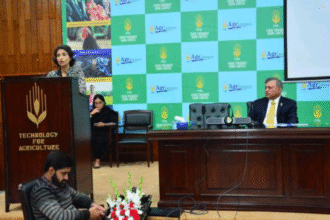ISLAMABAD: AI governance reforms enabled Pakistan’s Planning Ministry to exceed its monitoring and evaluation targets for August, completing 32 project evaluations against a planned 20—achieving a 160% completion rate.
According to the Monthly Development Update, the ministry monitored projects across multiple sectors. Notably, six education initiatives were jointly reviewed with the Ministry of Federal Education and Professional Training. This collaboration ensured closer oversight and timely interventions for critical programs.
To enhance efficiency, the ministry introduced an AI-enabled decision support system. This tool delivers evidence-based recommendations throughout project implementation. It also limits human discretion, embeds regulatory checks into automated workflows, and allows real-time tracking via public dashboards.
In addition, the ministry launched the Intelligent Project Automation System (IPAS), which digitizes the entire Public Sector Development Programme (PSDP) cycle—from project preparation and approval to monitoring and evaluation. IPAS now integrates with the Financial Accounting and Budgeting System (FABS), powered by SAP software. As a result, it supports detailed budgeting, automated releases, and real-time expenditure tracking.
To reinforce external oversight, the ministry pre-qualified 26 third-party firms for monitoring, validation, and inspection. It published their details on the Planning Commission’s official website, promoting transparency.
Meanwhile, the ministry developed a Complaint Management System (CMS), a centralized digital platform for receiving, tracking, and resolving PSDP-related complaints. Although the portal remains in testing, officials expect it to become operational soon.
Field monitoring is also set to improve. A mobile application—designed with input from field staff—is nearing completion. Once launched, it will enable real-time reporting of project progress and inspection outcomes.
These AI governance reforms reflect a broader shift toward transparent, efficient, and citizen-centered governance. By combining artificial intelligence, digital automation, and public accountability tools, the Planning Ministry aims to accelerate development outcomes and strengthen public trust.
Looking ahead, officials plan to extend AI tools to provincial planning departments. This expansion will standardize evaluation methods nationwide and reduce delays caused by manual reporting. Furthermore, the ministry is designing training programs to equip staff with digital skills needed to operate new systems effectively.
Ultimately, these reforms represent more than technical upgrades—they signal a commitment to data-driven governance. As Pakistan continues investing in digital infrastructure, the Planning Ministry’s model may inspire similar transformations across other public institutions.






